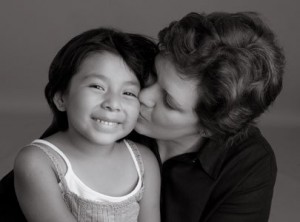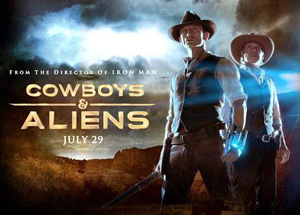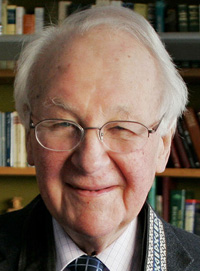Women
Ms. Maathai's life and work are examples of the truth of the adage, "Nothing is more powerful than a made up mind." She made up her mind that planting trees is a way to make life better for rural women and for all of humankind. She wanted to plant one tree for every person in Kenya. An the Green Belt Movement has planted tens of millions of trees.
[caption id="attachment_34028" align="alignleft" width="214" caption="Detail of a sculpture at the site of a former slave market, Christ Church, Zanzibar. By Cathleen Falsani."][/caption]
 Could my mission really be confined to seeking the best for the children to whom I gave birth? Or, as a Christian, should I define "family" more broadly? I'd see images of women and children suffering around the world, and those puzzling verses returned to my mind. Maybe, instead of obsessing over the happiness of my babies, I should stick my head out of the window, so to speak, look around, and ask, "Who is my family?"
Could my mission really be confined to seeking the best for the children to whom I gave birth? Or, as a Christian, should I define "family" more broadly? I'd see images of women and children suffering around the world, and those puzzling verses returned to my mind. Maybe, instead of obsessing over the happiness of my babies, I should stick my head out of the window, so to speak, look around, and ask, "Who is my family?"
It didn't feel right to simply shrug my shoulders and blithely accept my good fortune as compared to that of people born into extreme poverty. I'd buy my kids their new school clothes and shoes and then think of mothers who did not have the resources to provide their children with even one meal a day. I'd wonder: what's the connection between us? Does the fact that $10 malaria nets in African countries save whole families have anything to do with my family buying a new flat-screen TV? Should it? Is there any connection between me, a suburban, middle class mom, and women around the world?
I woke up on the morning of September 11, 2001 both nervous and excited. I had spent the last two months slowly proceeding through the application and interview process for an entry-level editorial position at Christianity Today to work with their Christian History and Christian Reader magazines. I'd had multiple interviews and had to write a few research heavy articles along the way. For someone with degrees in English and History and a graduate degree in Missions, it seemed like the perfect job. My final evaluation involved joining the staff at an all day off-campus retreat, where they would be evaluating potential articles for magazines. I was a bit nervous, but an insider in the company had told me the job was mine, so the excitement of finally landing my first real job after school prevailed.
So on the morning of September 11, I arrived at the country club where the retreat was being held and situated myself at the conference table in a room with a panoramic view of the far west Chicago suburbs.
Deep down I don't believe in the separation of church and state. Oh, I am against the idea of a state church or giving political preference to one religious sect or another, but it's the idea that somehow people can divorce their religious identity from their political identity that I just can't accept. That either our religion or our politics mean so little to us that we could restrict them to compartmentalized spheres in our lives seems absurd to me. I know people attempt to do it all the time, believing in the modern myth that an individual can assume an objective stance in this world, but reality is a lot more complex than that.
It was over in less than a minute. Three miles below the surface of the earth near a town in Virginia called Mineral, a fault line shifted. As a result, a 5.8 magnitude earthquake was felt from Georgia to New England and as far west as Detroit. The National Cathedral lost several stone spires, the Washington Monument cracked, and Sojourners' office was closed for the afternoon, as our building was checked for structural damage.
Tectonic plates move beneath our feet in the part of the globe that scientists refer to as the lithosphere. Over the course of a year, an average plate will move as little as 3 to 6 centimeters. The speed of their movement is 10,000 times slower than the hour hand on a clock and even slower than the rate of growth of human hair. For decades, sometimes centuries or millennia, a plate's movement might go almost entirely unnoticed. Then, in less than a minute, the world shakes and everything changes.
The recent British film In Our Name is a returning-soldier drama featuring a married woman, Suzy, who leaves her husband and little girl to fight in Iraq. Because she's involved in the killing of a little girl during her tour-this part is based on a true story, but it happened to a man -- she returns home only to steadily fall apart under the stress of soul-destroying anxieties.
Earlier this summer I attended a church service where the pastor, a man struggling with what appears to be his final bout with cancer, preached about the hope that Jesus promises to those who trust in him. After describing the returning Jesus brandishing a sword and dripping with the blood of all our vanquished enemies, he invited the audience to share what they saw as the hope that this Jesus promises. The responses ranged from no cancer, to no pain, to no worries about paying the bills, to the promise of an upgraded body -- all of course in heaven someday after we die. The congregation was encouraged to find contentment in the present from the possibility of realizing these promises someday. Our souls are what matter; the body just has to endure until our souls reach heaven. No mention of help with how to pay this month's rent or what it means for a cancer-ridden body to be the temple of the Holy Spirit, just the spiritual promise that someday all will be well.
The rioting and rampages that spread across English cities last week have caused severe property destruction and raised public alarm. Writing in London's Guardian, community organizer Stafford Scott describes how he was among the group that on August 6 sought information from the police in Tottenham, a poorer section of London. They wanted an official statement on whether Mark Duggan had been killed by police bullets, as had been reported in the news.
All we really wanted was an explanation of what was going on. We needed to hear directly from the police. We waited for hours outside the station for a senior officer to speak with the family, in a demonstration led by young women. A woman-only delegation went into the station, as we wanted to ensure that this did not become confrontational. It was when the young women, many with children, decided to call it a day that the atmosphere changed, and guys in the crowd started to voice and then act out their frustrations.
This event is what most media accounts have identified as the spark that set England on fire, which has caught the world by surprise. Yet, says Scott, "If the rioting was a surprise, people weren't looking."
Over the past few weeks various news outlets have run stories on the so-called feminism of Sarah Palin and Michele Bachmann. Typical of the media, in order to make that claim, they, of course, had to assume that any woman doing anything in public equals some sort of feminist revolution. It is, however, a rapidly spreading idea. If the concept of successful women must be blamed on feminist action, then successful conservative women must be the result of feminism as well. Granted this new definition of "feminist" is, as Lisa Miller wrote for the Washington Post, "a fiscally conservative, pro-life butt-kicker in public, a cooperative helpmate at home, and a Christian wife and mother, above all." But apparently it's still feminism.
While many from the left were outraged by the idea of associating these arch-conservatives, who stand against many of the things historical feminists have supported, with feminism, others supported the idea. Naomi Wolf, who seems to have a love/hate relationship with feminism, wrote that the problem some have with calling those women feminists is that we don't understand the history of feminism. She argues (rightly in my opinion) that feminism has only become associated with leftist agendas since the 1960's, but was, in its origins, more balanced and open to conservative values. But then she explains her reasoning why:
They say at some point in their lives great leaders experience a "dark night of the soul," or a period in life when your feet, knees, and face scrape and stick to the proverbial bottom." It is a time when even your soul feels forsaken. Ultimately, the dark night is not about the suffering that is inflicted from outside oneself, even though that could trigger it. It is about the existential suffering rooted from within. St. John of the Cross, the 16th century Carmelite priest, described it as a confrontation, or a healing and process of purification of what lies within on the journey toward union with God.
"Whenever you face trials of any kind," explained the apostle James, "consider it nothing but joy, because you know that the testing of your faith produces endurance; and let endurance have its full effect, so that you may be mature and complete, lacking in nothing." (James 1:2-4)
Lean and lanky, the 30-something teacher probed the congregation with a practiced eye as he wound down his presentation. Ezekiel, or "Zeke" (pseudonym), teaches at a secondary school in another country. Backed up by a carefully constructed PowerPoint presentation, Ezekiel shared his passion for sensitively pouring truth and grace into the lives of his students, particularly the girls. His blue eyes blazed as he asked if a woman in the Community Christian Church (not its real name) congregation would be willing to come forward and pray for the women of his host country.
No one moved.
 An account in The New York Times by Ethan Bronner reports that Israeli women and West Bank Palestinian women and girls have once again broken Israeli laws. They have gone swimming in the Mediterranean Sea.
An account in The New York Times by Ethan Bronner reports that Israeli women and West Bank Palestinian women and girls have once again broken Israeli laws. They have gone swimming in the Mediterranean Sea.
More than two dozen Israeli women invited Palestinian women and girls from the southern part of the West Bank of the Jordan River -- who are not normally allowed into Israel and have no access to the sea -- to go swimming with them. Under Israeli military occupation since 1967, according to Bronner, "most had never seen the sea before."
 Americans have a hard time knowing how to respond to the sins of our colonial past. Except for a few extremists, most people know on a gut level that the extermination of the Native Americans was a bad thing. Not that most would ever verbalize it, or offer reparations, or ask for forgiveness, or admit to current neocolonial actions, or give up stereotyped assumptions -- they just know it was wrong and don't know how to respond. The Western American way doesn't allow the past to be mourned or apologies to be made. Instead we make alien invasion movies.
Americans have a hard time knowing how to respond to the sins of our colonial past. Except for a few extremists, most people know on a gut level that the extermination of the Native Americans was a bad thing. Not that most would ever verbalize it, or offer reparations, or ask for forgiveness, or admit to current neocolonial actions, or give up stereotyped assumptions -- they just know it was wrong and don't know how to respond. The Western American way doesn't allow the past to be mourned or apologies to be made. Instead we make alien invasion movies.
In the wake of the tragic bombing in Norway this past weekend, we are left with an unsettling picture of the state of anti-Islamic sentiments in the United States. There were broad attempts to blame the bombings on Islamic terrorism before all of the facts of the attack were out, and even after the attacker became known as Anders Behring Breivik, a self-proclaimed Christian extremist, the discussion focused on Breivik's statement that he was responding to the threat Muslims pose in Europe.
 [Editors' note: Rev. John Stott, one of the world's most influential evangelical figures over the past half-century, died this Wednesday at age 90. Rev. Stott served as a contributing editor for Sojourners magazine, when we were known as The Post American, and wrote this article for the November/December, 1973 issue of the magazine. We will always remember Rev. Stott for his profound contributions to our community and the Church.]
[Editors' note: Rev. John Stott, one of the world's most influential evangelical figures over the past half-century, died this Wednesday at age 90. Rev. Stott served as a contributing editor for Sojourners magazine, when we were known as The Post American, and wrote this article for the November/December, 1973 issue of the magazine. We will always remember Rev. Stott for his profound contributions to our community and the Church.]
It seems to be a characteristic of the Anglo-Saxon mind to enjoy inhabiting the "polar regions" of truth. If we could straddle both poles simultaneously, we would exhibit a healthy balance. Instead, we tend to "polarize". We push some of our brothers to one pole, while keeping the other as our own preserve.
What I am thinking of now is not so much questions of theology as questions of temperament, and in particular the tension between the "conservative" and the "radical."
 The lost art of reading might be in danger, but I'm happy to report that the desire to write remains strong, at least with Amazw'Entombi ("Voices of the Girls").
The lost art of reading might be in danger, but I'm happy to report that the desire to write remains strong, at least with Amazw'Entombi ("Voices of the Girls").
This creative writing club in Gugulethu, a township 10 miles outside Cape Town, South Africa, drew together nearly two dozen expressive girls, ages 13 through 20, each week for a year. With the help of a prompt -- a phrase or a short piece of writing to get started -- together the girls and I wrote. Like athletes in training, we built up from an initial three minutes of writing to, eventually, 20 minutes and sometimes longer when they asked for more time. Then we would go around the circle where we sat and read aloud what each of us wrote.
One week, the girls collectively wrote their manifesto (below), and staged a reading when the Flip camera came out. Then Sharon added her own contribution, "Proudly South African" (to hear her read, click here). She's now enrolled in her first year studying psychology at the University of Cape Town. I'm secretly hoping she switches to journalism.
